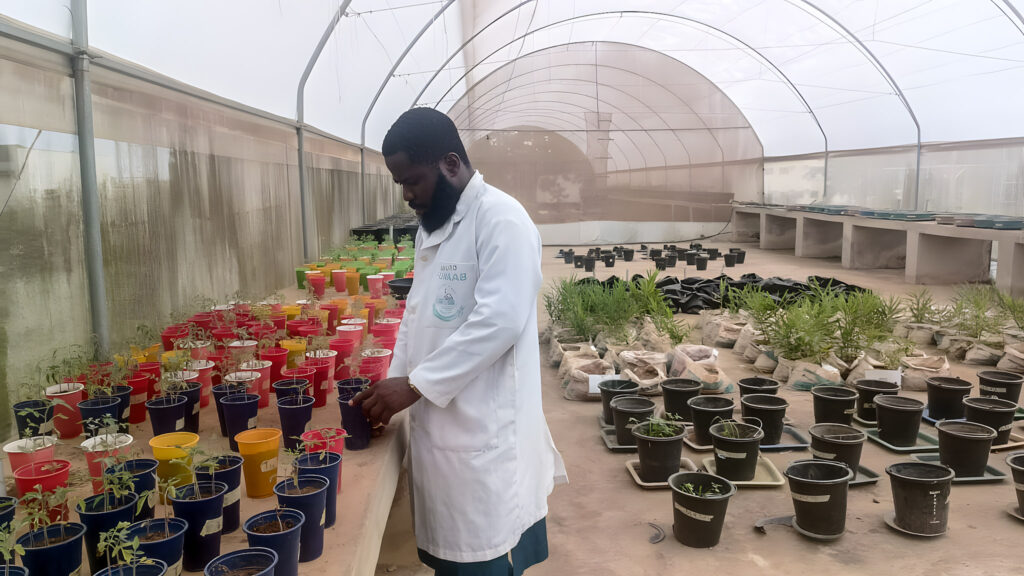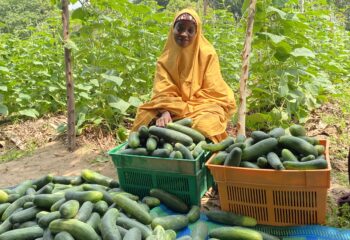
When Abdul Wasiu Lawal first saw a greenhouse as a child, he was fascinated by its structure. Yet, like many others, he grew up without ever learning how it worked or how it could enhance farming.
This gap in knowledge reflects a broader challenge. In fact, many universities across Nigeria, particularly those under government ownership, have yet to revise and modernize their agricultural curricula to reflect the latest industry innovations.
“I used to see greenhouses all the time, but I never understood how they functioned. Now, I’ve been trained to manage one from start to finish. That knowledge is power, especially for a young person like me.”
Abdul Wasiu Lawal
One such innovation is greenhouse management, a critical skill for boosting productivity, ensuring year-round cultivation, and improving resource efficiency. While the gap in adoption persists in many institutions, the Federal University of Agriculture, Abeokuta (FUNAAB) is setting the pace to adapt to new trends.
Now a postgraduate student at FUNAAB Abdul has become a skilled, confident, and employable young man, thanks to a strategic partnership between HortiNigeria and the university. As a result of this collaboration, FUNAAB has integrated greenhouse management into its academic curricula, combining theory with hands-on training for students such as Abdul.
“I used to see greenhouses all the time, but I never understood how they functioned,” Abdul explained. “Now, I’ve been trained to manage one from start to finish. That knowledge is power, especially for a young person like me.”
Greenhouses have become much more common across Nigeria, but many have fallen into disrepair due to a lack of technical expertise. With formal training now embedded into higher education, students are being equipped to fill that gap, with the ability to turn unused infrastructure into opportunity.
For Abdul, gaining greenhouse management skills goes beyond academic achievement. “There are greenhouses out there with no one to run them. Having these skills makes me more employable,” he states.
With the education he received, Abdul was able to secure a position with Jubaili Agrotech Group, where he put his new knowledge into practice. Though he has since moved to another role outside greenhouse management, the experience proved how valuable these skills are in opening doors to employment opportunities.
By introducing practical, industry-relevant training into academic programs, the HortiNigeria-FUNAAB partnership is ensuring that the next generation of agricultural professionals is not only prepared to work but also to lead the future of modern farming.
The HortiNigeria program (2021-2025), funded by the Embassy of the Kingdom of the Netherlands in Nigeria, aims to facilitate the development of a sustainable and inclusive horticulture sector that contributes to food and nutrition security in Nigeria. HortiNigeria is led by IFDC and implemented together with KIT Institute, Wageningen University and Research, and East-West Seed Knowledge Transfer Foundation.





